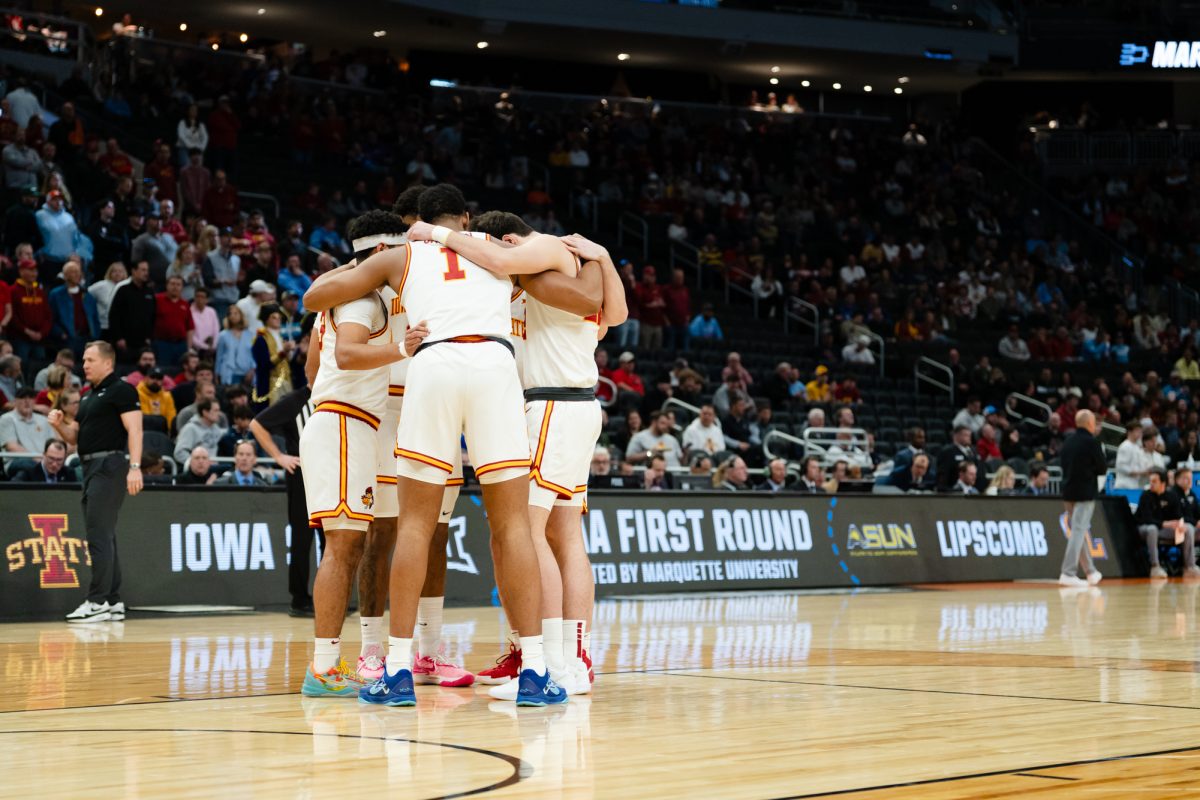Guest Column: Multicultural groups essential to identity formation
September 5, 2012
U.S. Rep. Steve King from Iowa’s 5th Congressional District recently claimed the promotion of the concept of multiculturalism will ultimately bring about the demise of the country as we know it. Speaking to supporters on Aug. 21, 2012, at a Le Mars town hall meeting, King conjured up a supposed deep and sinister plot to ensnare young and impressionable first-year college students into campus multicultural groups for the purpose of turning them into victims, which will convince them to work toward the eventual overthrow of the social power structure.
King talked about preparing for a debate some time ago at Iowa State on the concept of multiculturalism. He checked out the university’s website: “I typed in ‘multicultural,’” he said, “and it came back to me, at the time, 59 different multicultural groups listed to operate on campus at Iowa State. … And most of them were victims’ groups, victimology, people who feel sorry for themselves.”
He warned that these groups are “out there recruiting our young people to be part of the group who are feeling sorry for themselves. … But just think of 59 card tables set up across the parking lot on the way to the dorm. … And the first group says, ‘Well, you’re a victim that fits us. We want to help you. Why don’t you join us?’ … And then you’re brought into a group that has a grievance against society rather than understand there’s a tremendous blessing in this society.”
During the high school and into the college years, young people experience their greatest and most concentrated time frame of identity development in which they strive to answer the questions: Who am I now? Who was I before? Who will I become? High school, college and university campuses provide students the space to explore issues of personal and social identity along with academic subject areas.
Rather than resisting the concept of multiculturalism and viewing it as a challenge to our country’s very existence, we need to embrace our rich diversity. According to the National Association for Multicultural Education: “Multicultural education is a philosophical concept built on the ideals of freedom, justice, equality, equity and human dignity as acknowledged in various documents, such as the U.S. Declaration of Independence, constitutions of South Africa and the United States, and the Universal Declaration of Human Rights adopted by the United Nations. It affirms our need to prepare student for their responsibilities in an interdependent world.”
By the late 1960s, communities of color, as well as some white ethnic groups — predominantly from working-class backgrounds — and women in a new wave of the feminist movement reacted against this “ruthless Americanization” process and the “melting pot” and demanded rather the creation of a “patchwork quilt” or “salad bowl” in which each group — while joining with other groups — would, nonetheless, retain its unique cultural traditions and identities.
Later joined by gay, lesbian, bisexual and transgender people; advocates for youth and the elderly; people with disabilities; working class people; people of numerous faith backgrounds; and free thinkers, a push was underway to “decenter” the standard school curriculum and teach from multiple [multicultural] perspectives. The multicultural movement was founded on the principle that multiple voices and multiple perspectives must be represented in order to ensure a well-rounded education for all students, and to aid in the identity development process so essential to young people.
The Jewish immigrant and sociologist of Polish and Latvian heritage, Horace Kallen, coined the term “cultural pluralism” to challenge the image of the so-called “melting pot,” which he considered inherently undemocratic. Kallen envisioned a United States in the image of a great symphony orchestra, not sounding in unison (the “melting pot”), but rather, one in which all the disparate cultures play in harmony and retain their unique and distinctive tones and timbres.
Today, the United States stands as the most culturally, ethnically, racially, linguistically and religiously diverse country in the world. This diversity poses great challenges and great opportunities. I would advise King the way we meet these challenges will determine whether we remain on the abyss of our history or whether we can truly achieve our promise of becoming a shining beacon to the world.






